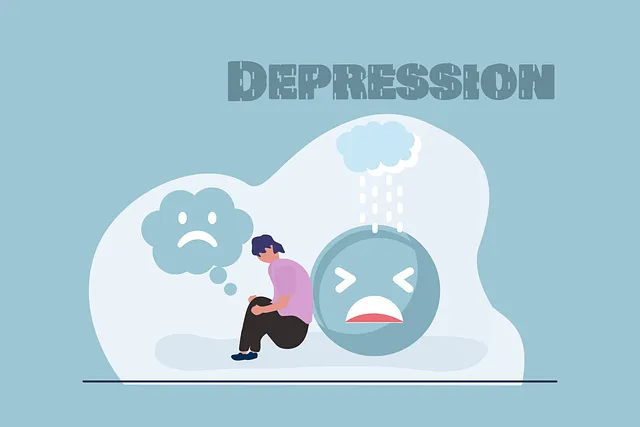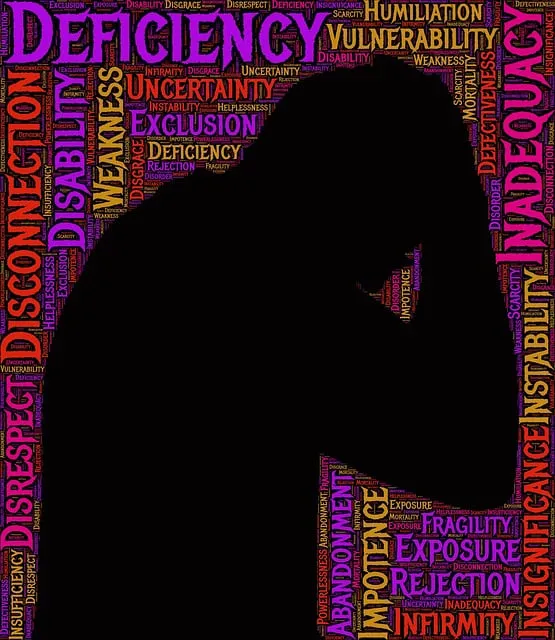The Kaiser Permanente mental health access center in Louisville is a leader in accessible, holistic mental care, integrating services and education to reduce stigma and empower individuals. Despite barriers like resource limitations and community stigma, the center's innovative practices – including cultural competency training and self-care workshops – model effective strategies for improving mental health policies and community well-being, as seen through its successful engagement models.
Mental health policy plays a pivotal role in shaping communities’ well-being, and effective advocacy is essential to drive positive change. This article delves into the critical analysis of mental health policies, focusing on their impact on communities and the efforts of organizations like Kaiser Permanente in enhancing access to care. We explore the specific case of Louisville, examining the role of the local Kaiser Permanente mental health access center in advocating for improved services. By understanding these dynamics, we can develop advocacy strategies to push for meaningful policy reforms.
- Understanding Mental Health Policy and Its Impact on Communities
- The Role of Kaiser Permanente in Advancing Mental Health Care
- Analyzing Access to Mental Health Services in Louisville
- Advocacy Strategies for Effective Mental Health Policy Change
Understanding Mental Health Policy and Its Impact on Communities

Mental health policy plays a pivotal role in shaping the well-being and resilience of communities, especially vulnerable populations. Understanding these policies is crucial, as they dictate access to mental healthcare services, influence treatment modalities, and determine the overall mental wellness landscape within a region. For instance, the Kaiser Permanente Mental Health Access Center in Louisville serves as a beacon of hope for many, offering comprehensive care through dedicated professionals.
Community-level impacts are significant; effective policies promote early intervention, reduce stigma, and ensure culturally competent healthcare services tailored to diverse needs. Initiatives such as Healthcare Provider Cultural Competency Training and Mental Wellness Journaling Exercise Guidance empower healthcare providers to connect with patients from various cultural backgrounds. Additionally, the production of a Mental Wellness Podcast Series can educate and inspire community members, fostering open dialogues about mental health and encouraging proactive wellness practices.
The Role of Kaiser Permanente in Advancing Mental Health Care

Kaiser Permanente, a leading healthcare provider, has been at the forefront of advancing mental health care, particularly through its dedicated Mental Health Access Centers. One notable example is their center in Louisville, which serves as a beacon for improving mental well-being in the community. This initiative underscores Kaiser’s commitment to integrating mental health services seamlessly into primary care settings, making access more equitable and less stigmatized.
The Louisville Mental Health Access Center embodies Kaiser Permanente’s holistic approach, focusing not just on treating disorders but also on fostering emotional well-being through self-care practices and mind over matter principles. By offering a range of services, from therapy to educational workshops, the center empowers individuals with the tools and knowledge needed to navigate life’s challenges. Through these innovative Emotional Well-being Promotion Techniques, Kaiser Permanente is not just treating symptoms but encouraging sustainable mental health management for all community members.
Analyzing Access to Mental Health Services in Louisville

In Louisville, access to mental health services has been a topic of increasing interest and concern. The Kaiser Permanente Mental Health Access Center Louisville stands as a beacon of hope for many residents, offering comprehensive care tailored to diverse needs. However, navigating the landscape of mental healthcare can still pose significant challenges. Barriers such as limited resources, stigma, and lack of awareness contribute to disparities in access, particularly among underserved communities.
To address these issues, various initiatives have been undertaken, including enhancing healthcare provider cultural competency training to ensure inclusive care. Promoting Self-Care Routine Development for Better Mental Health encourages proactive measures. Additionally, integrating Conflict Resolution Techniques within the mental health framework helps individuals manage stressors and seek support more effectively. Such efforts collectively aim to improve overall mental well-being in Louisville.
Advocacy Strategies for Effective Mental Health Policy Change

Advocacy plays a pivotal role in shaping mental health policies and driving meaningful change. Effective advocacy strategies for mental health policy include building resilience within communities by empowering individuals to share their stories, fostering open conversations, and promoting peer support networks. These initiatives help reduce the stigma associated with mental illness, encouraging early intervention and treatment-seeking behaviors.
The Kaiser Permanente Mental Health Access Center in Louisville serves as a model for community engagement, offering a range of services and programs tailored to local needs. Through targeted communication strategies, they facilitate access to care, educate the public, and advocate for policies that prioritize mental well-being. By combining direct service provision with advocacy, the center fosters an environment where individuals can thrive, contributing to a more supportive and inclusive society.
Mental health policy analysis and advocacy are vital for fostering equitable access to care, as exemplified by Kaiser Permanente’s efforts in establishing mental health access centers in Louisville. By examining existing policies and advocating for change, we can revolutionize mental healthcare, ensuring that communities like Louisville have robust resources to support resident well-being. The strategies outlined here, coupled with the commitment of organizations like Kaiser Permanente, can lead to significant improvements in mental health outcomes across the nation.






